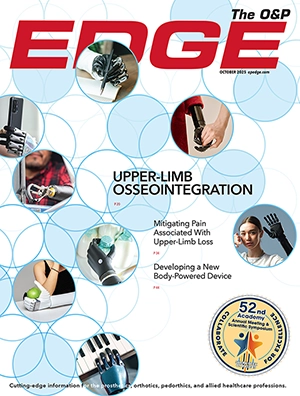During the prosthetist’s initial evaluation and diagnostic approach to =
determine recommendations of subsequent solutions to proper and pain =
free prosthetic rehabilitaion , should he not have general physicolgical =
knowledge to determine that floating muscles, a non stabilized tibia =
and fibia , nerve ending growth resluting in neuromas, and improperly =
tied or cortorized viens,blood vessals could be some reasons that would =
prevent long term rehabilitation and maybe more difficult or impossible =
to achieve with any prosthetic technology available today ?
During the fabrication process of the socket arent modifications of the =
socket considered to accomadate predominate bone, and cartiledge =
beneath the surface of the skin, scrared exterior skin and others =
predominant tissue issues considered to properly and comfortably fit =
the patient ?
Is it not the ethical and professional responsibility of the =
prosthetist,whom was provided a prosthetic perscription from the =
surgeon, include informing the surgeon and the patient of other =
optional surgical procedures that would increase the chances of =
successfull and long term prosthetic rehabilitation?
Or would you rather not piss the surgeon off and alienate him from =
future referrals?
Tony
—– Original Message —–=20
From: “Justin Foster”
To:
Sent: Monday, January 13, 2003 12:01 PM
Subject: Re: [OANDP-L] Fw: C-leg statement correction
> > Question for prosthetist professionals:
> > How many prosthetists discover and disclose to the patient upon =
thier
> >intitial evaluation,, that the stump he has been left to work with, =
is less
> >than perfect for delivering long term mobility and pain free =
prosthetic
> >rehabilitation?
>=20
> Unless the prosthetist did the surgery, their job is to work with what =
is
> presented… not speculate about what could have been accomplished in =
the
> OR… A consult with the physician is in order if there is a specific =
thing
> the prosthetist is looking for. It is not beneficial to your patient =
to say
> how great things COULD have been if only their surgeon were smarter…
> Bottom line, we as prosthetists don’t really know what happened inside =
the
> skin!
>=20
> Justin Foster
> Prosthetic Resident
> CIRS – Palo Alto
>=20




